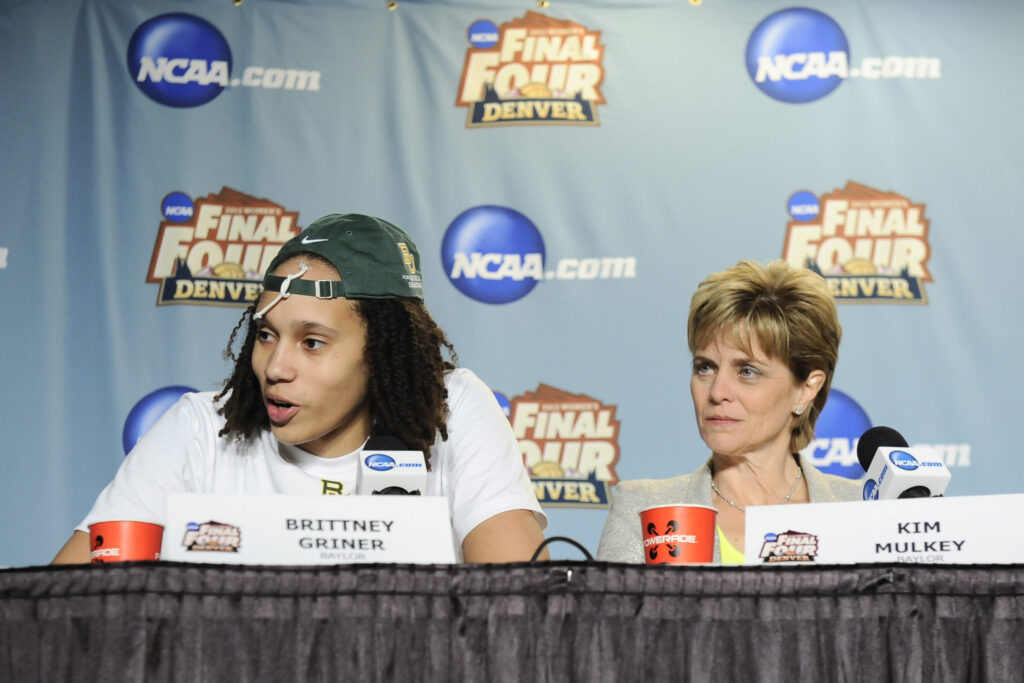Brittney Griner, one of the most prominent figures in women’s basketball, has never been shy about sharing her experiences. Recently, Griner opened up about her struggles as a gay athlete, particularly during her time at Baylor University, and took aim at her former coach, Kim Mulkey, for her lack of support during those challenging years.
In a candid interview, Griner reflected on her time at Baylor, a period marked by personal turmoil and the difficulty of hiding her true identity. Griner was forced to endure a lot of pain in silence, fearing judgment and rejection for being openly gay. Her experience, she revealed, was compounded by the lack of acceptance and empathy she received from those who were supposed to be her mentors and supporters, including Coach Mulkey.

“I’ve been suffering every day,” Griner said, her voice laden with emotion. Despite her success on the court, which included winning an Olympic gold medal and leading Baylor to a national championship, the pain she felt off the court lingered.
Griner explained how, throughout her college years, she felt pressured to hide her sexuality for fear of how it would impact her career. At the time, Baylor, a Christian university, had policies and a culture that were not welcoming to openly LGBTQ individuals. Griner, who had known she was gay for years, faced the harsh reality of being forced to suppress a part of her identity to fit into the expectations of her coaches, teammates, and the school community.
The lack of support from Mulkey, who was Baylor’s head coach at the time, was especially hurtful to Griner. Mulkey, who has been known for her tough coaching style, has often been criticized for not speaking out on social issues or providing support for her players dealing with personal challenges. Griner’s statement reveals just how much of an impact this lack of compassion had on her well-being.

In her interview, Griner said that although she felt physically strong and accomplished in her athletic career, the emotional toll of hiding her true self was overwhelming. “I’m good, I’m an Olympic winner,” she acknowledged, “but I’ve been suffering every day.”
Griner’s revelations highlight the larger issue of LGBTQ+ athletes and the struggles they face, particularly in environments that are not supportive of their identity. While things have improved in some areas of professional sports, the stigma and challenges for LGBTQ+ individuals, especially in conservative spaces, continue to exist.
Griner’s bravery in speaking out about her experiences at Baylor not only sheds light on the difficulties faced by LGBTQ athletes but also calls attention to the need for greater inclusivity and support within sports programs, especially at the collegiate level. Her story is one of resilience, and despite the pain, she has become a trailblazer for LGBTQ+ athletes everywhere, proving that it’s possible to succeed despite the hardships.

As Griner’s career continues to evolve, her openness about the struggles she faced serves as a powerful reminder of the importance of creating an environment in sports where everyone, regardless of their sexuality, can be accepted and thrive.
Her comments about Mulkey and her time at Baylor provide an essential conversation about the intersection of identity, sport, and support systems, showing that the path to success is not just about physical achievement but also about mental and emotional well-being.





